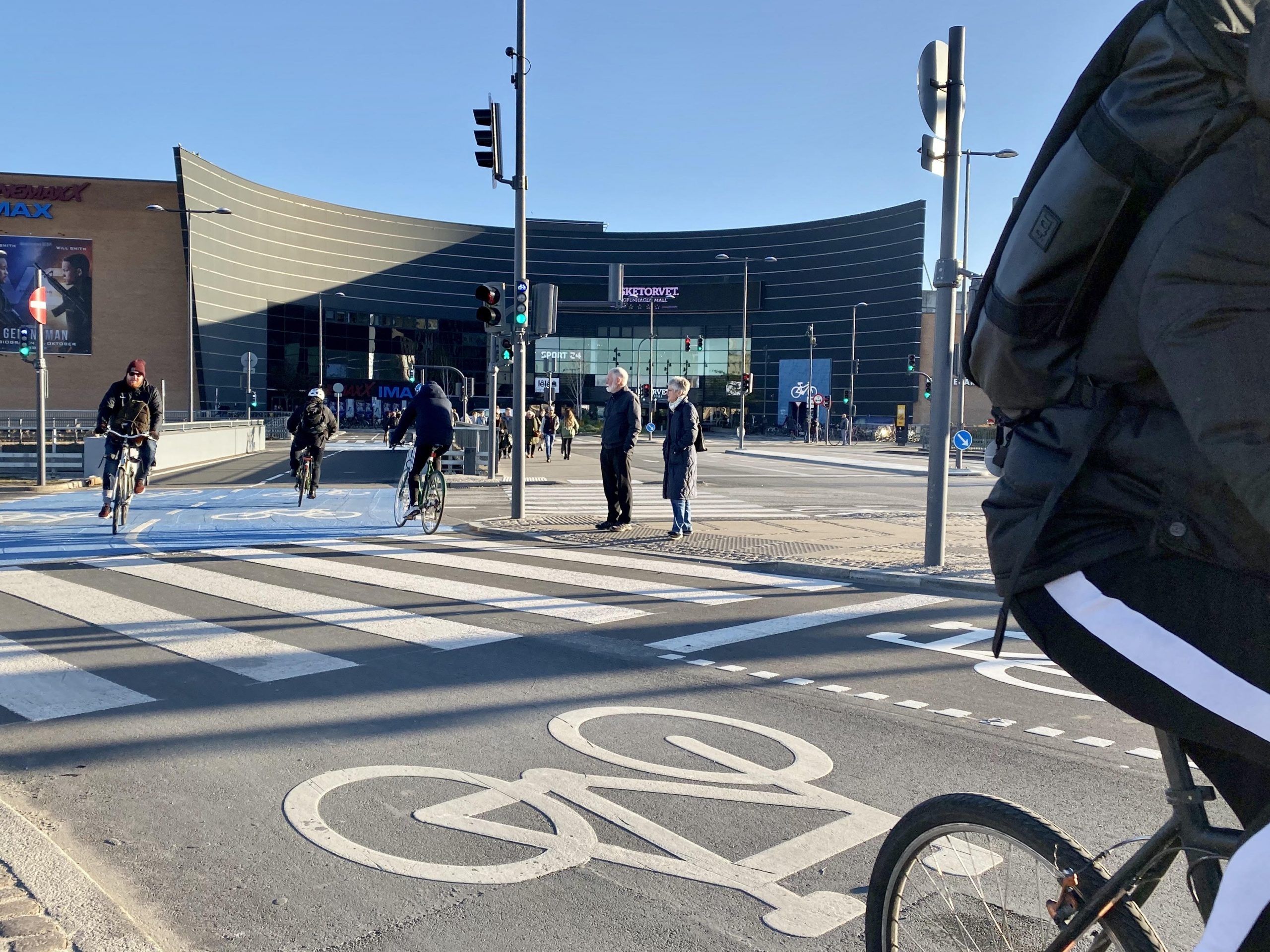Perhaps nowhere else can the conflicting spheres of transportation be seen than in Copenhagen, a city where bicycles outnumber people.
Yet the 95 percent of people who agree the city is bike-friendly have met a speed bump in the general ease of this form of green travel at the updated Dybbølsbro Bridge.
21,000 daily cyclists
The redesigned bridge was opened to an excited public on October 15, as its new cycle path is, with a breadth of ten metres, the widest in the city (beating Dronning Louises Bridge, which is eight metres wide).
At the time of its opening, 21,000 daily cyclists were expected to cross the bridge, which connects Dybbølsbro Station to the Fisketorvet shopping centre.
New signage
Yet sometimes even solutions require resolutions. Since the reopening, pandemonium has broken out at the end of the bridge at the five-legged intersection where confused cyclists are left to navigate the new double-track bicycle path on the bridge.
The police and administration responsible for the design of the bridge have set out to help cyclists, and more permanent adjustments for safety – including the instalment of new information boards and traffic signage, along with colour coding to clearly distinguish the paths and which areas are either car or bicycle-free zones – will be put in place.
Growing area
The redesigned bridge is part of a 101 million kroner redevelopment of the area, which will include the addition of 275 bicycle parking spots at the station.
The area is expected to see more bicycle and pedestrian traffic in the near future – particularly due to the forthcoming opening of a new IKEA store nearby.
Infrastructure fears
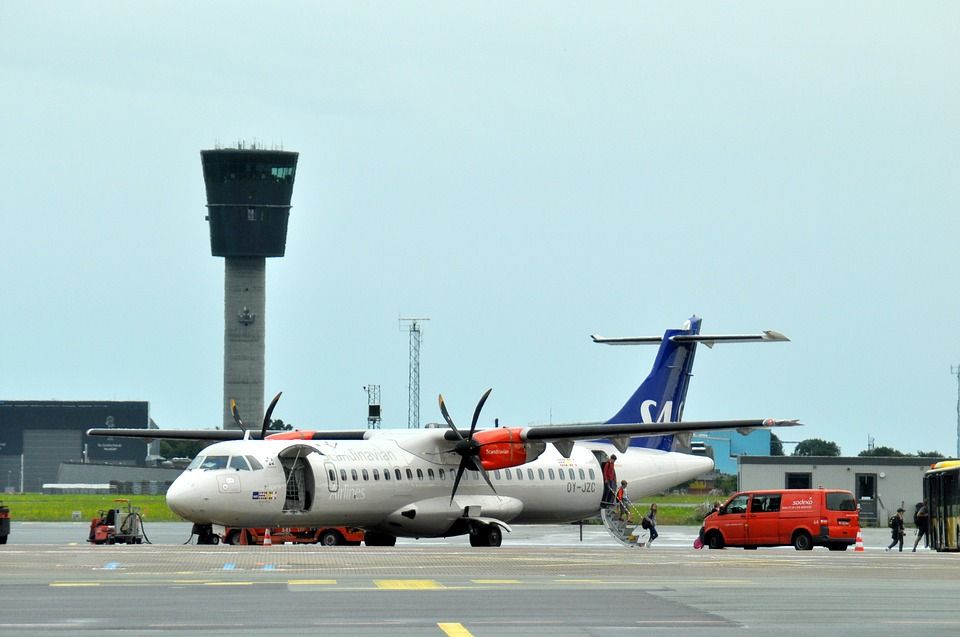
A report by the Centre for Military Studies at the University of Copenhagen claims that Danish airports, ports and telecommunications networks are vulnerable to being taken over by foreign interest groups – particularly those in Russia or China, which could obtain sensitive information. For example, Copenhagen Airport is a listed company, and a state-owned company could easily acquire a majority stake. The government does not have an ‘emergency brake’ to stop such deals. “We aren’t taking the threat seriously,” the report’s author André Ken Jakobsson told Berlingske. (BH)
Cyclists’ texting concerns
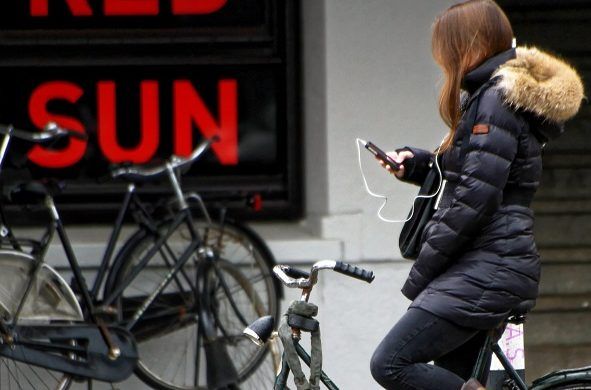
During the same week in mid-September that the police confirmed they would be targeting distracted motorists, stories started to circulate on social media that the police are fining cyclists for using their phones whilst pedalling. However, according to a recent campaign, the police have bigger priorities when targeting misbehaving cyclists, even though the offence could land you a 1,000 kroner fine. Of the 254 cyclists recently fined during the ‘Styr Udenom’ campaign by Østjyllands Politi in the east Jutland city of Aarhus, only two were fined for using their mobile phones. (BH)
Whole lighthouse moved

The Rubjerg Knude Fyr lighthouse in north Jutland has been moved to save it from crashing into the North Sea in the next 40 years. Its journey took five hours, drawing media from all over the world, including Australia – here to marvel at Danish ingenuity instead of racism for a change. The Guardian – not to miss out on a Danish story with such stunning Nordic Noirish backdrops – entitled its piece “How to move a 120-year-old lighthouse from A to B”. While over on the RTE website in Ireland, one of its readers compared the live feed to “watching paint dry”. (BH)
Electric scooter games
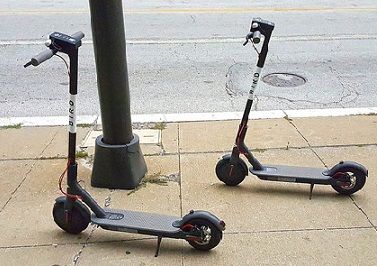
Every time journalists have been short of a story this year, they’ve called up a hospital to get a recap on the number of injuries caused by electric scooters. The result is not so much a national injury figure, but more a number that sounds bad. Bispebjerg & Frederiksberg Hospital in Copenhagen, for example, estimates it has had 50 A&E admissions. Odense University Hospital started registering the injuries in July and has since recorded 28 admissions. Talks are ongoing regarding their permanent introduction as the end of their one-year trial approaches. (BH)
New free city bike
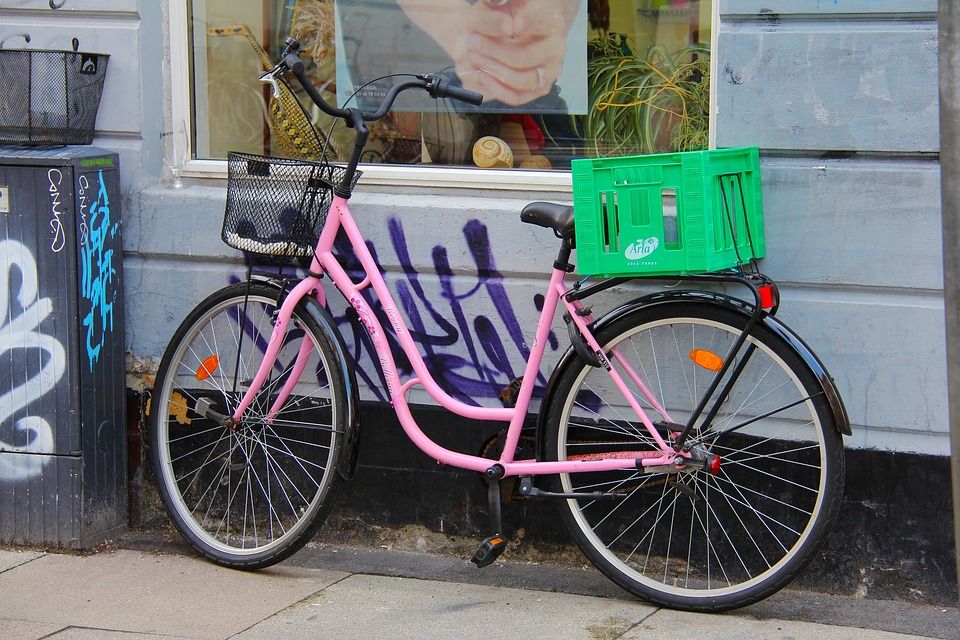
A free shared city bike, ‘Green’, made from recycled parts, was launched by Free Bike Share Community (FBSC) on October 10 in conjunction with the C40 World Mayor Summit in Copenhagen, with more set to follow. Users are encouraged by a sign on the bike to “ride me, share me, care for me”. FBSC is confident the bikes can “increase the usage of shared mobility and be available to those who cannot afford paid alternatives”. However, it conceded that a similar venture in Amsterdam in the 1960s failed – partly because some of the bikes were thrown in the canal. (BH)
Metro complaints
Following scores of complaints, Metroselskabet has started grinding the remainder of the City Ring. Without the work, which was originally scheduled to start next year, homes in Frederiksberg, Østerbro and Nørrebro can hear the trains every time they pass. In related news, many are complaining about the new bus timetable, which has resulted in a reduced service for many lines.
Polluted roads
According to Google Street View, there are high levels of ultrafine particles on roads across the city – particularly in the city centre and at motorway entry points, such as Lyngbyvej, which can have levels up to ten times higher than quieter streets.
DFDS signs Brexit deal
DFDS has signed a six-month ‘Brexit contract’ with the UK to transport necessary goods like vital medicines into the country. In related news, DFDS is building an onshore power plant in Copenhagen to reduce pollution from its ferries.
Stiffer sentences
Parliament is gearing up to pass legislation to encourage courts to hand out stiffer sentences for dangerous driving. Most cases, however reckless, land sentences of between 16 and 36 months, even though the maximum possible sentence is eight years. Concerned MPs question what framework is required to ensure the right kind of sentences are handed out.
Boeings withdrawn
An inspection of 31 of SAS’s Boeing 737 NG aircraft has revealed cracks on two of the planes, reports check-in.dk. Worldwide checks have discovered the same problem with 38 aircraft – invariably where the wings are attached to the fuselage. The SAS planes have been withdrawn from service.
Tesla relocation
Tesla has decided to shut down its store near Kongens Nytorv in central Copenhagen and open one in the suburb of Hillerød instead, which will enable more test drives and other services. Additionally, Tesla is building a new service workshop in Jutland, reports FDM.

